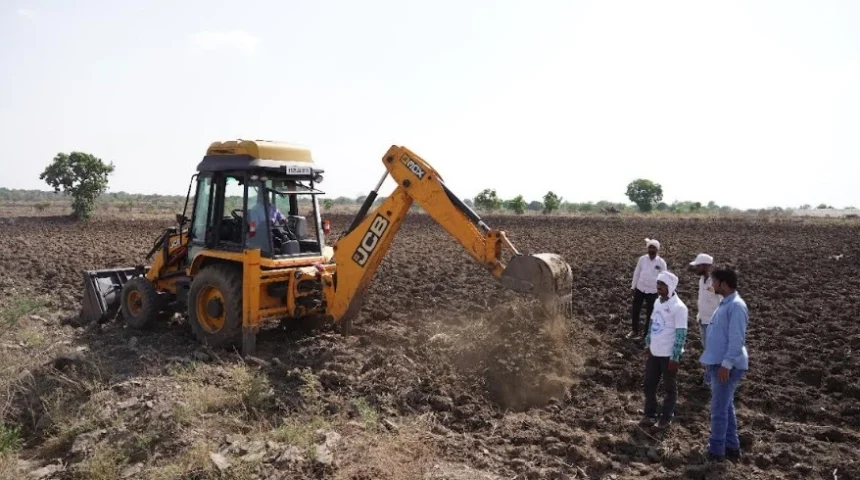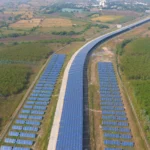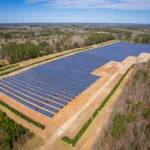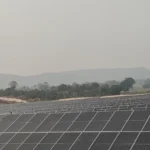India’s Water Emergency: A Crisis That Can’t Wait
India, once home to perennial rivers and thriving aquifers, is now facing a severe water crisis. Groundwater levels are plummeting, rivers are running dry, and floods and droughts are alternating in a destructive cycle. Despite monsoons sweeping across the country, only 20% of India’s water needs are met by rainfall and surface water, while a staggering 80% comes from groundwater—a source that has been overexploited for more than two decades.
The Art of Living’s Vision: Making India Water-Positive
Guided by spiritual leader and humanitarian Gurudev Sri Sri Ravi Shankar, The Art of Living Social Projects has taken a bold, science-backed, and community-driven approach to solve India’s water crisis. Its mission is ambitious yet achievable: to make India water-positive—restoring rivers, recharging aquifers, and empowering rural communities.
Achievements so far (as of August 2025):
-
72 rivers, streams, and tributaries rejuvenated
-
1,05,050+ groundwater recharge structures built across 8 states
-
₹1,74,52+ crore worth of water conserved
-
3.45 crore people empowered
-
7,00,000+ trees planted along river basins
Science Meets Tradition: Region-Specific Water Solutions
The Art of Living’s water conservation team—comprising retired ISRO scientists, hydrologists, geologists, civil engineers, and IT professionals—uses advanced geo-informatics, GIS mapping, and remote sensing to design tailored solutions. The strategy focuses on slowing down rainwater to let it sink into the ground instead of flowing away.
Key interventions include:
-
Check dams and recharge pits
-
Contour trenches to prevent soil erosion
-
Multi-purpose structures that improve soil moisture and restore river base flows
In Vellore, Tamil Nadu, these interventions raised the water table by 12 feet, verified by the state’s Water Supply and Drainage Board.
JalTara: A Farm-Level Water Revolution
The flagship JalTara project is transforming agriculture by installing small recharge pits at the lowest point of each farm plot, paired with two fruit-bearing trees. These pits direct rainwater deep into aquifers, bypassing impermeable topsoil.
Proven results from JalTara:
-
Water table increase: +14 feet
-
Crop yield growth: +42%
-
Farmer income rise: +120%
-
Year-round employment: +88%
-
Waterlogging reduction: 100%
Farmers like Sulabai Chavhal from Maharashtra now harvest full granaries instead of empty fields, while Ramchandra Mandale’s village went from extreme scarcity to year-round water access.
Beyond Water: The 4R Approach for Long-Term Sustainability
The Art of Living tackles the water crisis through a 4R framework:
-
Reduce – Training youth leaders to raise awareness on mindful water use
-
Reuse – Treating wastewater for domestic and agricultural use through Nature-Based Solutions (NBS)
-
Recharge – Building terrain-specific water structures to replenish aquifers
-
Recycle – Restoring polluted water bodies via bioremediation and phytoremediation
A Scalable Model for India’s Water Future
Endorsed by experts like Dr. K. Satyagopal, former Chairman of Tamil Nadu Water Resources Corporation, the initiative’s success lies in mobilising communities—especially women—and fostering government-citizen collaboration.
The Central Ground Water Board (CGWB) has already reported that several “critical” water regions have shifted to “safe” levels thanks to these interventions.
The Road Ahead
With plans to scale JalTara to 5 lakh recharge pits across 1 lakh villages in five years, The Art of Living Social Projects is setting a national blueprint for water sustainability.
This isn’t just about conserving water—it’s about restoring hope, livelihoods, and ecological balance for millions of Indians. As the organisation continues its mission, it stands as a shining example of how science, spirituality, and community action can unite to solve one of the greatest challenges of our time.












